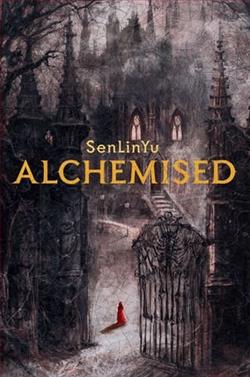Page 17 of The White Oak Lodge
Nina went pale. “What if it isn’t?”
Amos held his breath and didn’t answer.
“Did you go to his funeral?” Nina asked.
Amos tilted his head and tried to throw himself back into that harrowing time after the fire. He remembered where he’d been when he first smelled the flames: a beach bonfire, watching the fireworks explode over the sound, bratwurst, and too much beer in his belly. He’d been seventeen years old and expecting a call from the police at any time. The terror of that had done a number on his soul.
But had Amos gone to the funeral? He couldn’t remember one. He couldn’t remember a starchy suit or the ache in his gut that came from the guilt of having lived longer than one of hispeers. He couldn’t remember having looked into the beautiful and inky eyes of Francesca Whitmore, saying how sorry he was.
That didn’t mean the funeral hadn’t happened. It was twenty-seven years ago. Memories had fallen through the cracks of his mind.
“I don’t know. I honestly don’t remember,” Amos answered, feeling both sorry for himself and sorry for Nina. Amos was the wrong person to ask, and he was all she had.
“After it happened, I was sent to Michigan almost immediately,” Nina explained. “And my great-aunt Genevieve told me that I couldn’t go back for the funeral.”
“That’s ridiculous,” Amos said, taken aback. “Your father died. Your brother died. You needed to grieve with your family!”
“They didn’t see it that way. I think they wanted me out of the way,” Nina offered, unable to look him in the eye. She picked up the photograph again and tilted it so that Amos could see Jack’s face. “He looks older than I remember him. Doesn’t he look like he’s twenty-one or twenty-two here? Doesn’t that make the date correct?”
Amos tugged at his hair nervously. He didn’t want to indulge any of Nina’s fantasies, but then again, he didn’t want her to think he didn’t believe her.
“You don’t think he, um, didn’t die in the fire, do you?” he asked finally, stumbling over his words. He felt like saying,you don’t think the sky is orange, do you?
“At the Nantucket Historical Society, there were no obituaries,” Nina offered stiffly. “There was no mention of a funeral, either.”
Amos’s jaw hung slack. His mind searched for meaning, and he eventually said, “You know how the Nantucket newspapers can be. They aren’t exactly the most, um, organized. I’m sure they’ve missed a few weddings or births or…”
In the far distance on the Nantucket Sound was the dark shadow of a boat. Amos knew that whoever was on it couldn’t see them, that they were on a dark and shadowy shore.
“I get that,” Nina said.
She went on to tell him about the photograph she’d found when she’d come to Nantucket on a spontaneous honeymoon with her husband in 2012. It was the first time she’d mentioned her husband, and Amos felt a sting when she didn’t throw the term “ex” into the ring. But when she said, “I couldn’t believe he’d dragged me here to learn about my family when I’d made it very clear I was happy without them, happy not to know more,” Amos buzzed with goodness. Her husband had thrown her happiness under the bus for his own experimentation.
“Anyway, I kept this photograph hidden from him for all these years,” she said. “Now I have the chance to get to the bottom of it.”
Amos remembered she’d said she was staying for a few weeks or more. His heart suddenly ached with the idea that sometime, sooner rather than later, she’d go.
“If Jack or my father are still alive, someone knows something,” she said. But then she formed a fist and looked down at it.
Amos could feel her twisted thoughts. For twenty-seven years, she’d been sure that Benjamin and Jack were dead.
“But what if all this is made up?” Amos asked. “What if they’re really gone?”
Nina’s eyes stirred. “I need to know that, too.”
Nina waved the photograph around. “Do you know anyone else in this photo? Are any of them associated with that restaurant with the glass walls?”
“That place doesn’t exist anymore,” Amos said. “It was damaged in a storm back in ’15 and torn down.”
Nina’s eyes sparkled. “But the owner must be in the photo?”
Amos studied the faces again, searching his mind for names and connections.
When he didn’t speak for a while, Nina took a breath and said, “You really don’t have to help me. I’m sorry for assuming that you’d even want to!” Her voice brightened, and she twisted to hide the photograph away. “Please, I’ve taken up too much of your time. Eat your food!”
But Amos reached for the photo, stopping her. “Give me a minute,” he said sternly.
Nina watched him, waiting.















